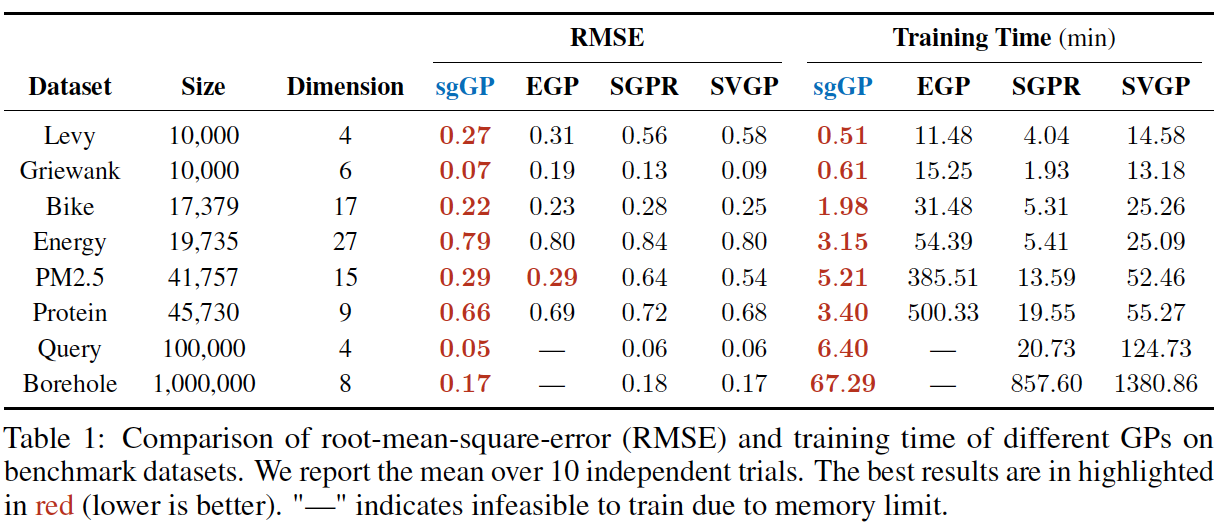- In this project, we apply stochastic gradient descent (SGD) algorithm and its variants to accelerate and improve Gaussian process (GP) inference.
- We provide code for implementing sgGP described in Stochastic Gradient Descent in Correlated Settings: A Study on Gaussian Processes by Hao Chen, Lili Zheng, Raed Al Kontar, Garvesh, Raskutti.
- We prove minibatch SGD converges to a critical point of the empirical loss function and recovers model hyperparameters with rate 1/K (K is the number of iterations) up to a statistical error term depending on the minibatch size.
- We prove that the conditional expectation of the loss function given covariates satisfies a relaxed property of strong convexity, which guarantees the 1/K optimization error bound.
- Computationally, we are able to scale to dataset sizes previously unexplored in GPs in a fraction of time needed for competing methods. Meanwhile statistically, we find that the induced regularization imposed by SGD improves generalization in GPs, specifically in large data settings.
- Exponential eigendecay. The eigenvalues of the kernel function decay exponentially.
- Bounded iterates. The true parameters and SGD iterates lie within a bounded interval.
- Bounded stochastic gradient. The norm of the stochastic gradient is upper bounded by a constant.




